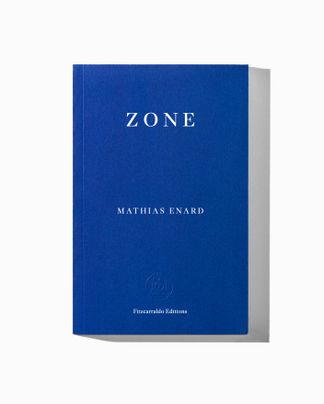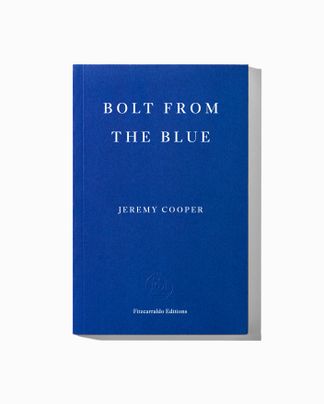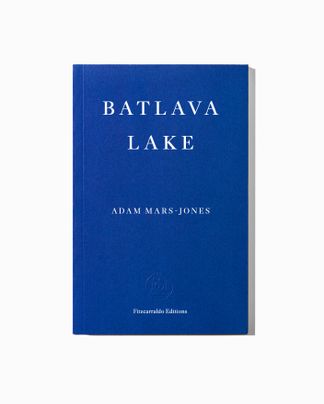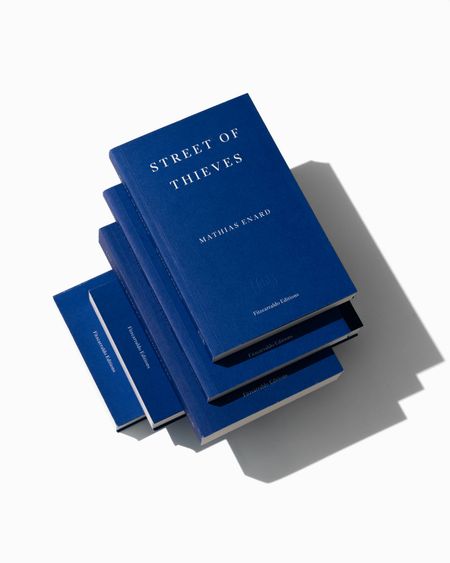In 1506, Michelangelo – a young but already renowned sculptor – is invited by the sultan of Constantinople to design a bridge over the Golden Horn. The sultan has offered, alongside an enormous payment, the promise of immortality, since Leonardo da Vinci’s design was rejected: ‘You will surpass him in glory if you accept, for you will succeed where he has failed, and you will give the world a monument without equal.’ Michelangelo, after some hesitation, flees Rome and an irritated Pope Julius II – whose commission he leaves unfinished – and arrives in Constantinople for this truly epic project. Once there, he explores the beauty and wonder of the Ottoman Empire, sketching and describing his impressions along the way, and becomes immersed in cloak-and-dagger palace intrigues as he struggles to create what could be his greatest architectural masterwork. Constructed from real historical fragments, Tell Them of Battles, Kings and Elephants is a thrilling novella about why stories are told, why bridges are built, and how seemingly unmatched pieces, seen from the opposite sides of civilization, can mirror one another.
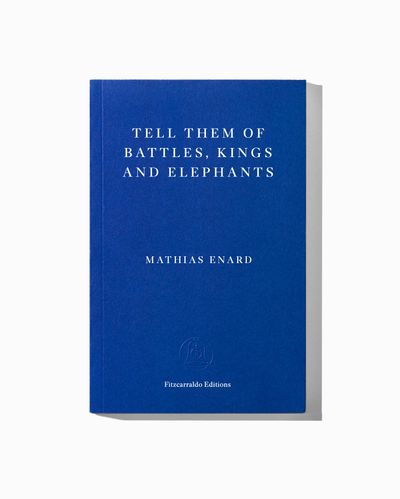
Tell Them of Battles, Kings and Elephants
Translated by Charlotte Mandell
French paperback with flaps, 144 pages
Published 1 November 2018
Tell Them of Battles, Kings and Elephants
Translated by Charlotte Mandell
¶ Night does not communicate with the day. It burns up in it. Night is carried to the stake at dawn. And its people along with it – the drinkers, the poets, the lovers. We are a people of the banished, of the condemned. I do not know you. I know your Turkish friend; he is one of ours. Little by little he is vanishing from the world, swallowed up by the shadows and their mirages; we are brothers. I don’t know what pain or what pleasure propelled him to us, to stardust, maybe opium, maybe wine, maybe love; maybe some obscure wound of the soul deep-hidden in the folds of memory.
You want to join us.
Your fear and confusion propel you into our arms; you want to nestle in there, but your tough body keeps clinging to its certainties; it pushes desire away, refuses to surrender.
I don’t blame you.
You live in another prison, a world of strength and bravery where you think you can be carried aloft in triumph; you think you can win the goodwill of the powerful, you seek glory and wealth. But when night falls, you tremble. You don’t drink, for you are afraid; you know that the burning sensation of alcohol plunges you into weakness, into an irresistible need to find caresses, a vanished tenderness, the lost world of childhood, gratification, the need to find peace when faced with the glistering uncertainty of darkness.
You think you desire my beauty, the softness of my skin, the brilliance of my smile, the delicacy of my limbs, the crimson of my lips, but actually, what you want without realizing it is for your fears to disappear, for healing, union, return, oblivion. This power inside you devours you in solitude.
So you suffer, lost in an infinite twilight, one foot in day and the other in night.
¶ Three bundles of sable and mink fur, one hundred and twelve panni of wool, nine rolls of Bergamo satin, the same quantity of gilt Florentine velvet, five barrels of saltpetre, two crates of mirrors and one little jewellery box: that is the list of things that disembark with Michelangelo Buonarroti in the port of Constantinople on Thursday, 13 May 1506. Almost as soon as the frigate moors, the sculptor leaps ashore. He sways a little after six days of difficult sailing. No one knows the name of the Greek dragoman waiting for him, so we’ll call him Manuel; we do, however, know the name of the merchant accompanying him: Giovanni di Francesco Maringhi, a Florentine who has been living in Istanbul for five years now. The merchandise belongs to him. He is a friendly man, happy to meet this hero of the republic of Florence, the sculptor of David.
Of course Istanbul was very different then; it was known as Constantinople; Hagia Sophia sat enthroned alone without the Blue Mosque, the east bank of the Bosphorus was bare, the great bazaar was not yet that immense spider-web where tourists from all over the world lose themselves so they can be devoured. The Empire was no longer Roman and not really the Empire; the city swayed between Ottomans, Greeks, Jews and Latins; the Sultan was named Bayezid the second, nicknamed the Holy, the Pious, the Just. The Florentines and Venetians called him Bajazeto, the French Bajazet. He was a wise, tactful man who reigned for thirty-one years; he loved wine, poetry and music; he didn’t turn his nose up at either men or women; he appreciated the arts and sciences, astronomy, architecture, the pleasures of war, swift horses and sharp weapons. It is not known why he invited Michelangelo Buonarroti of the Buonarrotis of Florence to Istanbul, though certainly the sculptor was already enjoying great renown in Italy. Some saw him at the age of thirty-one as the greatest artist of the time. He was often compared to the immense Leonardo da Vinci, twenty years his senior.
¶ That year Michelangelo left Rome on a sudden impulse, on Saturday 17 April, the day before the laying of the first stone of the new St Peter’s Basilica. He had gone for the fifth day in a row to request that the Pope deign to honour his promise of additional money. He was turned away each time.
Michelangelo Buonarroti shivers in his wool coat; the spring is timid, rainy. He reaches the borders of the republic of Florence as the clock strikes 2 a.m., Ascanio Condivi, his biographer, tells us; he stops over at an inn thirty leagues from the city.
Michelangelo rails against Julius II, the warlike, authoritarian pope who has treated him so poorly. Michelangelo is proud. Michelangelo is aware that he is an artist of great talent.
Knowing he is safe in Florentine territory, he turns away the attendants the Pope has sent after him with orders to bring him back to Rome, by force if necessary. He reaches Florence the next day in time for supper. His servant gives him a thin broth. Michelangelo curses the architect Bramante and the painter Raphael, those jealous types who, he thinks, have served him a bad turn with the Pope. Pontiff Julius Della Rovere is a proud man too. Proud, authoritarian, and a miser. The artist had to pay from his own pocket the cost of the marble that he went to pick out in Carrara to build the papal tomb, an immense monument that would sit enthroned right in the middle of the new basilica. Michelangelo sighs. The advance on the contract signed by the Pope had been spent on furs, travel, and apprentices to quarry the blocks.
The sculptor, exhausted by the journey and his troubles, a little warmed by the broth, shuts himself away in his narrow Renaissance bed and falls asleep sitting up, his back against a cushion, because he is afraid of the image of death the outstretched position suggests.
(…)
New Statesman Books of the Year 2018 | Spectator Books of the Year 2018
‘Any year Mathias Enard brings us new work is always worth celebrating. He invites us to engage with subjects as intricate as beauty, history and art, and always finds some way to make it still feel vital, leaving you with a resounding sense of hope and generosity. While Tell Them of Battles, Kings and Elephants may at times feel like reading the most beautiful poem as the world slowly degrades around you, it might also convince you that art is invincible. An important idea to hold on to, I think, as we wait for our political pantomimes to play out. Charlotte Mandell translates and the book is a miracle.’
— Guy Gunaratne, New Statesman
‘In some alternative universe, a beautifully elegant four-arched Renaissance bridge straddles the waters of the Golden Horn in the city now known as Istanbul. As every schoolchild in that other world might know, Michelangelo designed it in 1506 after Sultan Bayezid II invited the Florentine sculptor, architect and painter to work in Constantinople … Out of the tantalising might-have-been of Bayezid’s bid for Michelangelo’s genius, French writer and Middle Eastern scholar Mathias Enard has crafted Tell Them of Battles, Kings, and Elephants, a compact fiction with much to say about the bridges – personal and cultural – that we cross or fail to cross…. Translated with sensuous flair by Charlotte Mandell … Enard packs a feast for the senses into this short book.’
— Boyd Tonkin, Financial Times
‘[A]n elegant, passionate love letter to world civilisation and its agents, most prominently Michelangelo, whose sojourn in Constantinople in 1506 infused his work with oriental poetry. Charlotte Mandell’s translation is yet another proof that great books can, and should, travel.’
— Anna Aslanyan, Spectator
‘Mathias Enard traces a parable about connections between the monotheistic Christian and Muslim faiths, about the many ways mankind has tried to use art and engineering to counter the forces of gravity, and about how people from other lands so often turn out to be less different from us than we realise. Translated by Charlotte Mandell, Tell Them of Battles, Kings and Elephants is a short but magical work.’
— Fiammetta Rocco, 1843
‘[A] rush of invention of a kind that is conceivable from few other contemporary writers. There is a lush materiality to Énard’s prose, thick and smooth, so that following the artist’s expeditions through Ottoman opium dens feels nearly as immersive as being in them.’
— Elisabeth Zerofsky, New York Times
‘A richly suggestive Renaissance counternarrative by the author of Zone and Compass. Like Michelangelo’s The Creation of Adam, the story hangs on the electric potential of an unrealized touch: Énard imagines what might have happened had Michelangelo exposed his genius, so decisive in the history of European art, to the great Ottoman metropolis.’
— Julian Lucas, New Yorker
‘In this charming little reverie of a book, inspiration springs from our unguarded confrontations with the unfamiliar.’
— Sam Sacks, Wall Street Journal
‘[A] Borgesian thought experiment, describing the deep impression made on Michelangelo by something that never happened.’
— Adam Mars-Jones, London Review of Books
‘[B]eautifully wrought in its simplicity – credit must go to Charlotte Mandell’s translation – with a perfectly paced narrative that reaches a dramatic denouement.… Enard’s taut prose carries the reader swiftly and satisfyingly through chapters (which are more like fragments, really) to the extent that one does not wish for the tale to end. Upon closing the book one feels like reading it again. I did. Enard won the 2015 Prix Goncourt for Compass. He is a writer worth discovering.’
— NJ McGarrigle, Irish Times
‘[A] subtle, fragmented story, which is full of hints and gestures towards big ideas and other stories without ever spelling them out for us.’
— Lucy Dallas, Times Literary Supplement
‘Necessary – no one writes like Mathias Enard.’
— Francine Prose
‘A masterful exercise in brevity…. Enard’s descriptions consistently dazzle throughout this short book … Enard weaves an imaginative and suspenseful tale of civilizations and personalities clashing, of love, of being an artist in a violent era, of enthralling “what ifs,” and of the figurative – and perhaps literal – burning of bridges and connections.’
— NPR
—
Ian Maleney interviews Mathias Enard for Granta
—
Mathias Enard, born in 1972, studied Persian and Arabic and spent long periods in the Middle East. He won several awards for Zone, including the Prix du Livre Inter and the Prix Décembre, and won the Liste Goncourt/Le Choix de l’Orient, the Prix littéraire de la Porte Dorée and the Prix du Roman-News for Street of Thieves. He won the 2015 Prix Goncourt, the 2017 Leipziger Book Award for European Understanding, the Premio Gregor von Rezzori and was shortlisted for the 2017 International Booker Prize for Compass.
Charlotte Mandell has translated fiction, poetry, and philosophy from the French, including works by Proust, Flaubert, Genet, Maupassant, Blanchot and many other distinguished authors. She has received many accolades and awards for her translations, including a Literature Translation Fellowship from the National Endowment for the Arts for Zone by Mathias Enard. Her translation of Enard’s Compass was shortlisted for the 2017 Man Booker International Prize.

